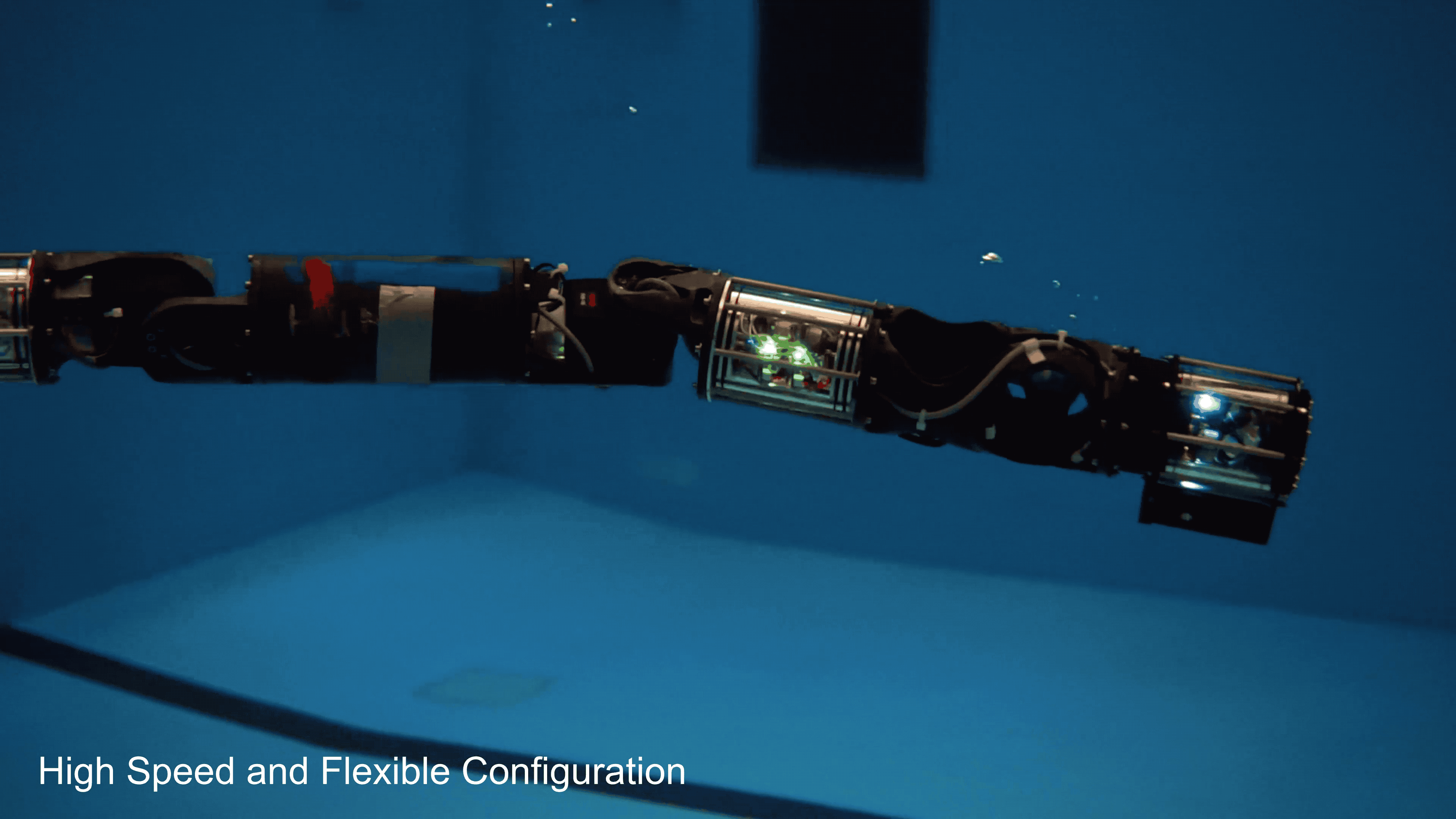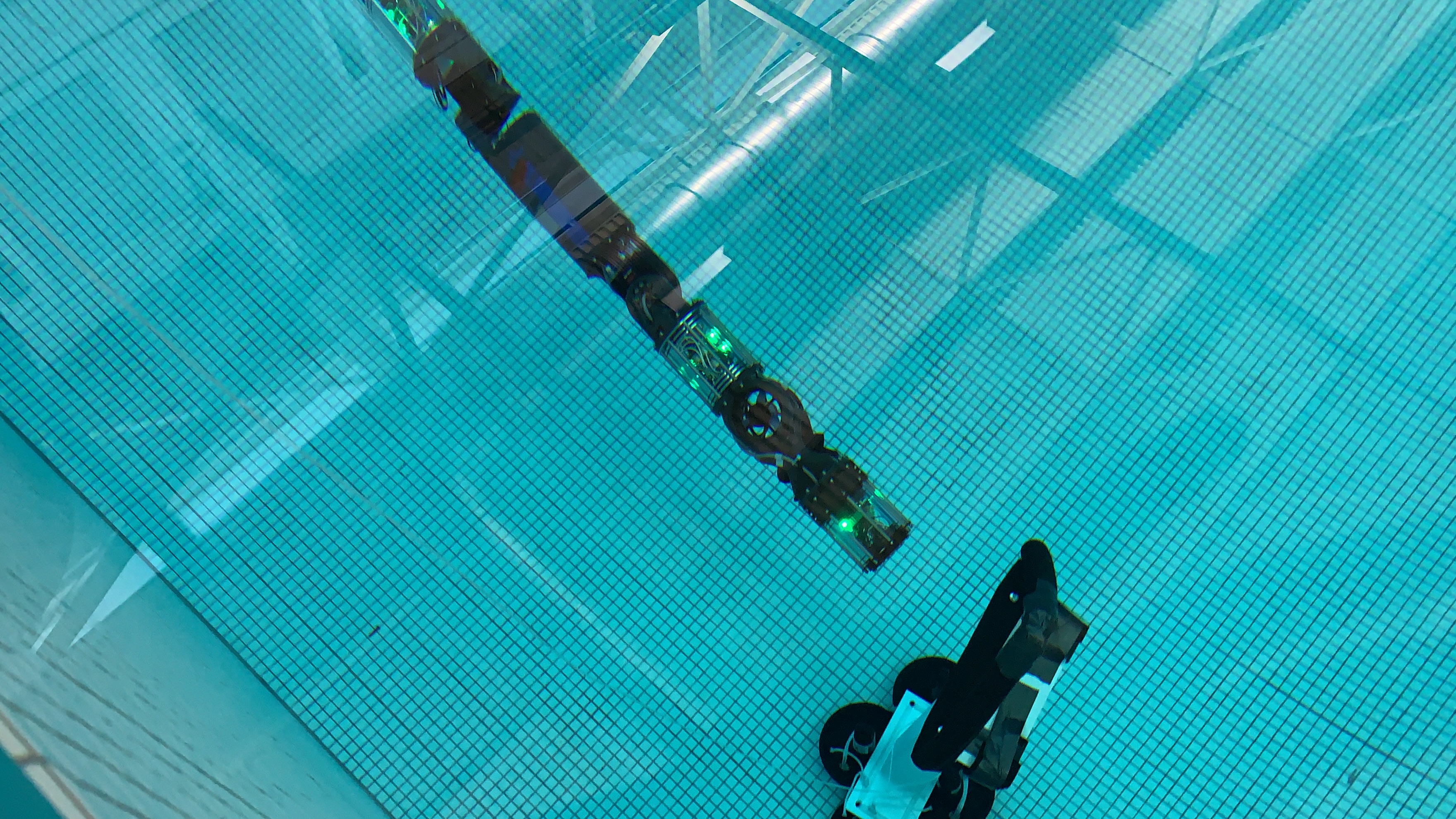The snake robot has been something of an institution in the Carnegie Mellon robotics labs. Every time I visit the school, the biomimetic robot has seemingly learned a new trick. This week, the school announced it has added swimming to the list.
Testing actually began last month in one of CMU’s pools, with the snake robot outfitted with new housing designed for underwater navigation. Work on the project began last July. “I’m surprised that we made this robot work as fast as we did,” professor Howie Choset said in a release tied to the announcement. “The secret is the modularity and the people working on this technology at CMU.”
The Hardened Underwater Modular Robot Snake (HUMRS) was developed with a grant from the Advanced Robotics for Manufacturing (ARM) Institute.
In its terrestrial version, the snake robot is notable for its ability to squeeze into tight spaces like pipes, which might otherwise be inaccessible for other more standard robotic form factors. Underwater, it serves a similar function. The project finds the team eyeing Defense Department usage — specifically the ability to inspect submarines, ships and other watercraft to detect damage.
Other nonmilitary applications include inspections for rigs and tanks, along with underwater pipes.





